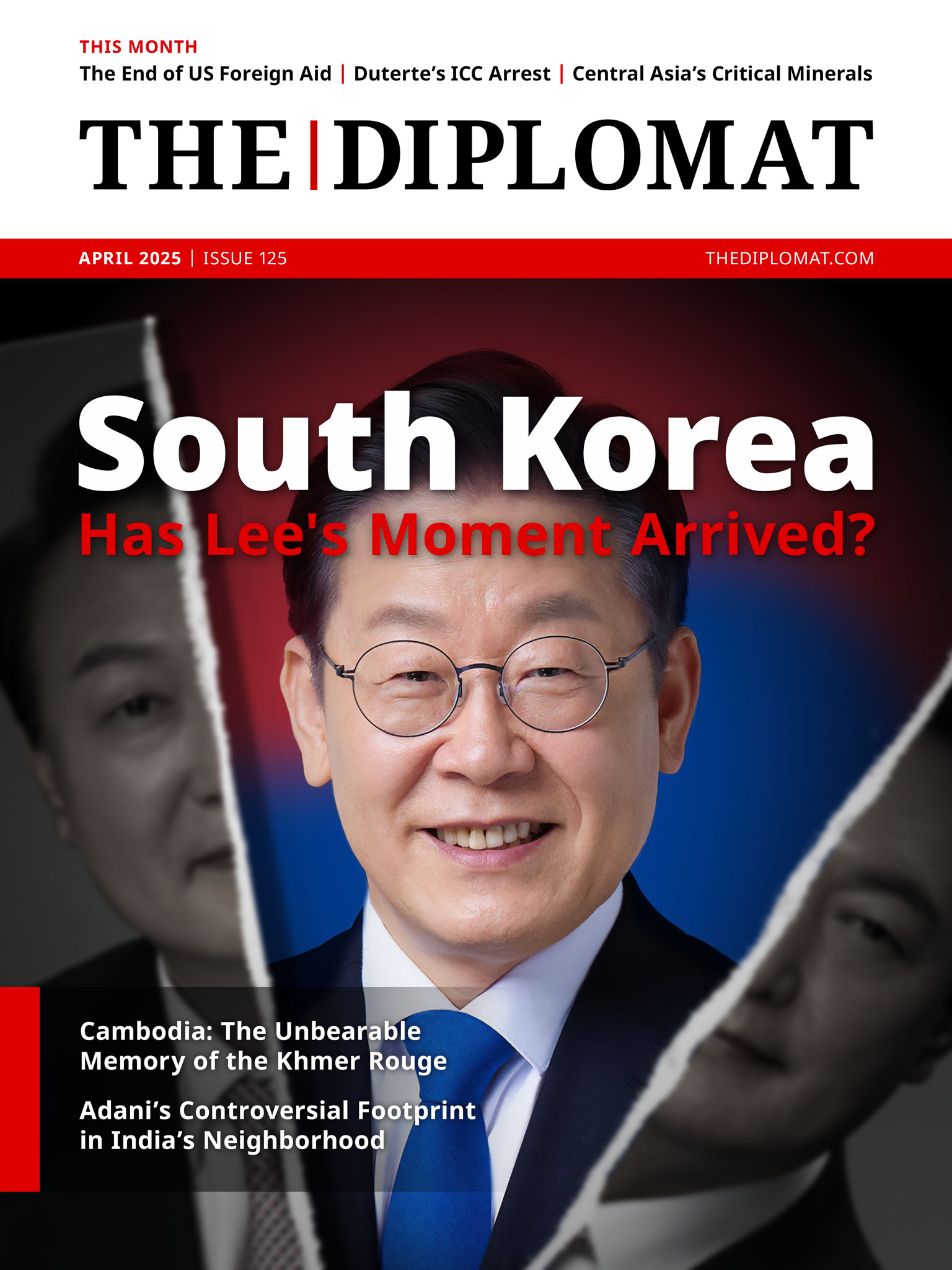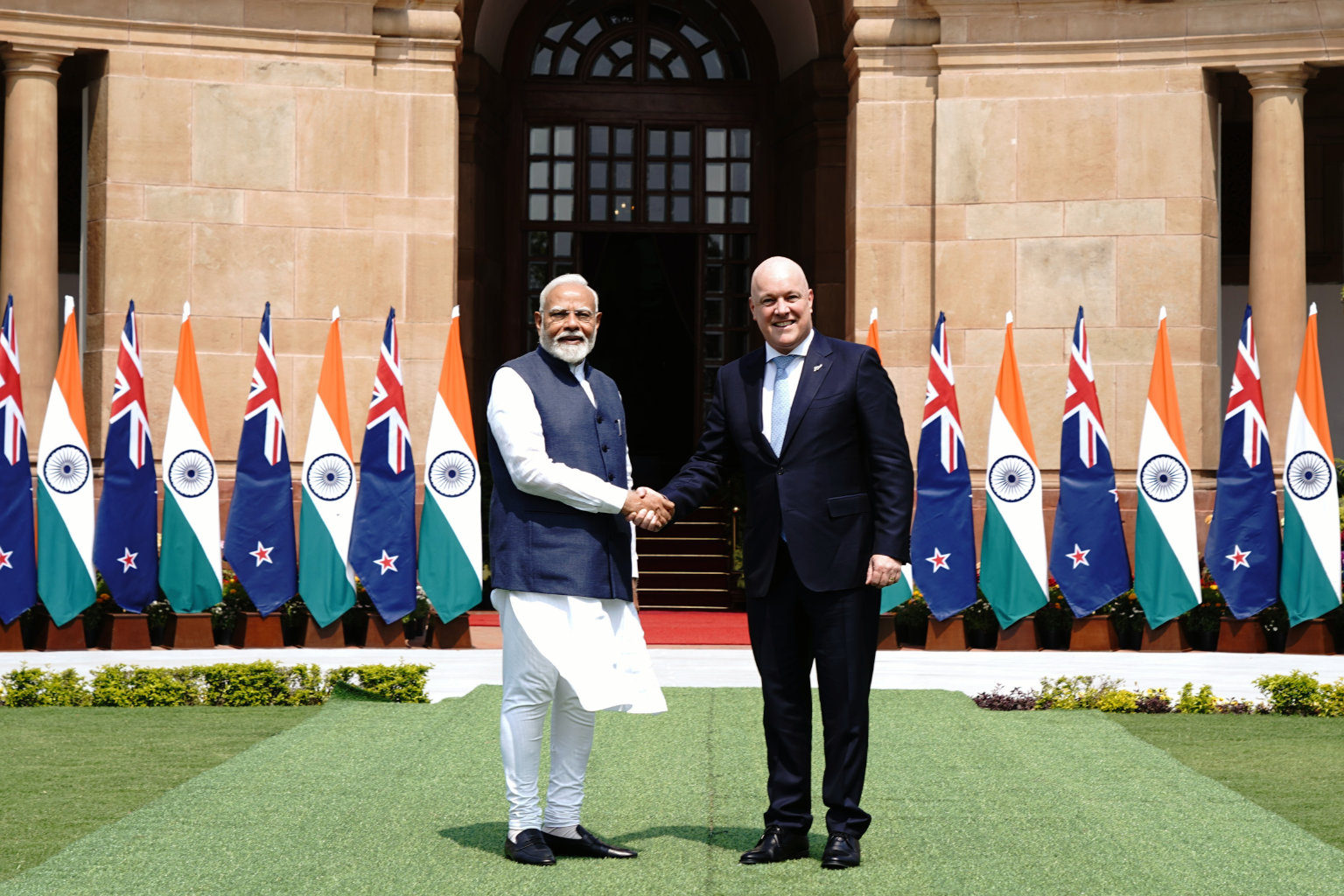
South Korea: Has Lee’s Moment Arrived?
Table of Contents
April 17, 1975 can perhaps never be fully reappropriated because of the strong sense of shame and pain that surrounds it.
The growth of the Adani Group, especially overseas, has mirrored Modi’s political ascendancy. As a result, controversy involving Adani projects causes backlash against India as a whole.
While Beijing wants to see an end to U.S. sanctions, it is unequivocal about opposing Iran’s acquisition of nuclear weapons.
The 2025 Two Sessions reflected China’s attempt to balance economic recovery with social stability, prioritizing innovation and social welfare amid demographic challenges.
Beijing is responding to past international criticism and a domestic economic slowdown while offering a cost-effective tool to deepen influence in the Global South.
From military espionage to pro-China Taiwanese influencers to local government officials, the Lai Ching-te government is seeking to curb infiltration by Beijing.
The Chinese government frequently demands that businesses prove their political loyalty – even at the cost of their own financial interests.
The Constitutional Court has monopolized South Korea’s attention lately, sparking a slew of debates over its distended importance, functions, and limitations.
Despite the volatile international environment, the Japanese people have no intentions of ever developing nuclear weapons.
South Korea’s model of military service has failed to act as a bridge between the military and society, instead reinforcing divisions that now threaten political stability itself.
China has been intensifying its information war against Japan’s Achilles’ heel – Okinawa.
Lessons from the 1925 Locarno Treaties for the contemporary security dynamics of the U.S., South Korea, and Japan.
India has imposed a five-year ban on two moderate separatist groups with which it could have initiated a dialogue.
In trying to please both Beijing and Washington, Islamabad has not been able to draw the full benefit of its relationship with either country.
While an ICJ case may not immediately change conditions on the ground in Afghanistan, it nevertheless carries profound symbolic, political, and legal weight.
The Trump administration froze a $500 million grant to Nepal, changing the calculus of the China-India-U.S. tug of war over its power sector.
Days after a major train hijacking, the BLA targeted buses carrying Pakistani security forces. Both attacks highlight the BLA’s new strategy of combining suicide attacks with conventional guerrilla warfare.
Duterte’s arrest is a welcome win for the victims of the drug war and the project of international justice, but its broader lessons are more ambiguous.
The involvement of an extraregional great power in a small power’s territorial disputes with China may prove counterproductive.
Civil society groups say that the changes are a throwback to the repressive New Order period, when the military dominated civilian affairs.
The debate surrounding the “digital wallet” stimulus is now less about whether it’s a good or bad idea and more about just how much damage it will do.
Data is the oil of the 21st century, and Southeast Asia risks pumping its reserves into foreign tanks. The need for the region to develop its own technological infrastructure has never been more pressing.
Uzbekistan and Kazakhstan, in particular, are weaving offerings of critical minerals partnerships into their global diplomatic efforts.
The Trump administration’s decision to suspend the U.S. global air quality monitoring program complicates matters in far-away Tajikistan.
With one year left until the targeted WTO membership deadline, what could success bring?
Astana is talking a big game on artificial intelligence, but can it deliver?
Authoritarian consolidation might have accelerated border deal-making on the paper, but it may also impede deal-making on the ground.
The U.S. was always expected to get the technology first, but circumstances changed under Trump and Canada snagged first place.
The region voted overwhelmingly for independence from Papua New Guinea in 2019, but realizing this in practice has been far from straightforward.
Historically underemphasized, New Delhi-Wellington engagement is now gaining strategic and diplomatic prominence.
A new report outlines the importance of strengthening civics education in Australia.
The pace of change over the last two months has been remarkable, but one thing remains the same: the Indo-Pacific needs the United States, especially economically.
Faced with mounting doubts over Washington’s reliability, U.S. allies in the Indo-Pacific may start charting their own course.
Ironically, Trump’s approach to international relations is playing the game of his proclaimed main enemy: Xi Jinping’s China.
South Koreans may favor their country developing nuclear weapons in the abstract, but practical considerations pose a major obstacle.
Over the course of a year-long study, we analyzed the campaign in Ukraine, comparing it with Taiwan’s military strategies and defense posture. Here’s what we found.
Starved of outside support, resistance groups have been forced to adopt low-cost solutions to battlefield challenges.
In 2021, the Sri Lankan Army became the unlikely vanguard of a supposed green revolution, resulting in a radical redefinition of civil-military relations in farming regions.
The 18th century mechanisms of diplomacy were quite similar to those of today: both in Europe, as well as in India.
For China, Sinicizing Tibet’s next generation through boarding schools is the ultimate strategy for solidifying its control over the region.
Japan’s decision to end its contribution to the U.N.’s top gender equality body could hardly come at a worse time, both diplomatically and symbolically.












































